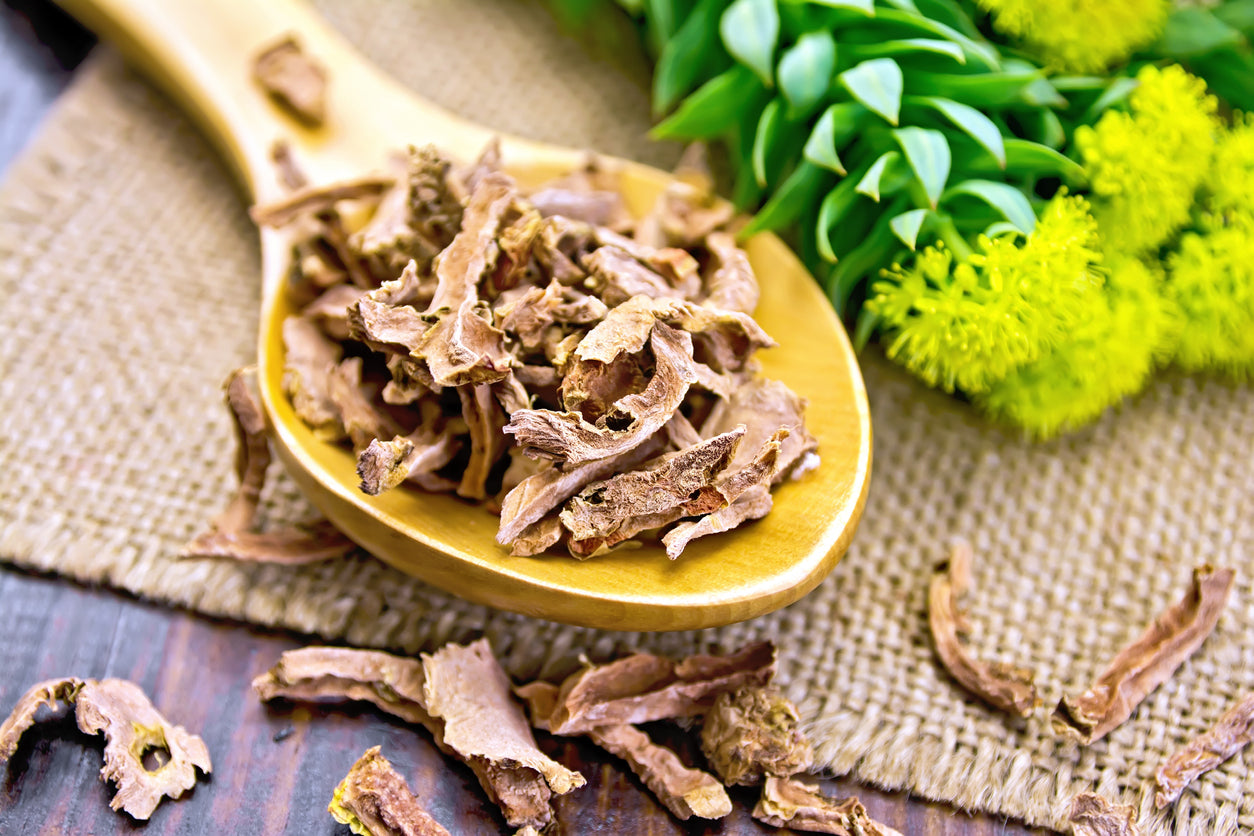The 4 best herbs to “fine-tune” your memory

If you are an older adult and find yourself fumbling for a word that temporarily eludes you, momentarily "blanking" on a new acquaintance's name, or rummaging around for your misplaced car keys, you have plenty of company. According to MayoClinic.org, some degree of memory problems - as well as a modest decline in other thinking skills - is a relatively common part of aging.
And, of course, even young people aren't immune to occasional bouts of "brain fog" and forgetfulness. (However, if your memory problems are causing disruptions in your daily life, see your healthcare provider for diagnosis and treatment). Let's look at four natural herbs and nutrients that are believed to support clear thinking, enhance concentration and improve memory.
Ease anxiety, lift mood and banish the "mental fuzzies" with rhodiola rosea
Rhodiola, also known as Arctic root and golden root, has been used for centuries in Russian and Scandinavian folk medicine to treat anxiety, fatigue, and depression. Classified as an adaptogen - meaning a substance that helps the body deal with stress - rhodiola contains bioactive principles, such as rosavin and salidroside, that are believed to have anxiety-relieving and mood-lifting properties.
A study published in the Journal of Alzheimer's Disease suggested rhodiola could increase cognition and counteract mood disorders. In recent research, scientists at the Liebniz Institutes for Neurobiology reported that a rhodiola compound known as ferulic acid eicosyl ester, (or FAE-20) might improve memory performance in old age. Although this study was performed on animals, the researchers say that the results would likely apply to people as well.
Natural healers typically recommend rhodiola in amounts of 400 mg a day - but consult your integrative doctor before trying the herb. (Pro tip: experts advise opting for a high-quality formulation from a reputable vendor that contains at least 3 percent rosavins and 1 percent salidrosides. )
Green tea may spur cognitive function by strengthening connections in the brain
Rich in polyphenols and antioxidants, such as epigallocatechin-3-gallate (EGCG) and l-theanine, green tea is currently being investigated for its potential to increase cognitive function and help lower the risk of cognitive impairment and dementia. In a study published in Psychopharmacology, scientists found that a green tea extract could help treat cognitive impairments and improve working memory. And the research offered a "window" into the mechanisms by which green tea confers its benefits.
Researchers reported that the extract caused increased connectivity between the right superior parietal lobe (which deals with processing sensory information into thoughts and language) and the brain's frontal cortex - which is responsible for decision-making, advanced thinking, and problem-solving. So if your concentration is flagging and your thoughts are fuzzy, a refreshing cup of green tea just might help you regain mental focus!
(Pro tip: To minimize exposure to unwanted fluoride in green tea, natural healers advise using loose green tea made from young tea buds and limiting consumption to five cups a day).
Ginkgo biloba stimulates blood flow to the brain
Derived from the leaves of an ancient Asian tree, ginkgo biloba extract has been used for centuries in Traditional Chinese Medicine to ease a range of conditions, including poor circulation and respiratory complaints. Rich in antioxidant and anti-inflammatory compounds such as glycosides and terpene lactones, ginkgo biloba increases the flow of oxygen-rich blood to the brain - which may allow it to boost memory, improve mental focus and ramp up cognitive speed.
While some research on ginkgo biloba has been inconclusive, one influential study conducted by researchers at the prestigious UCLA Neuropsychiatric Institute showed that ginkgo biloba supplementation caused older adults with age-associated memory impairment to exhibit significantly better recall than a control group. While ginkgo biloba may not work for everybody, many people swear by its ability to sharpen memory and enhance concentration. Natural healers typically advise ginkgo biloba amounts of 120 mg to 240 mg a day, taken in divided servings. However, check with your qualified health care provider before trying ginkgo biloba.
Ashwagandha may facilitate "upgrades" in cognitive abilities
Like ginkgo biloba, ashwagandha is an ancient herb revered in TCM and Ayurveda. Botanically known as Withania somnifera (and sometimes called winter cherry and Indian ginseng), ashwagandha has a "secret weapon"- a group of antioxidant, anti-inflammatory plant compounds known as withanolides. One of these, in particular, Withaferin A, is of special interest to scientists for its potential to boost cognition.
Some researchers believe that ashwagandha can improve function in people with age-related mild cognitive impairment, as studies have suggested it may enhance executive functioning, promote concentration, quicken reaction time, and boost performance on cognitive tasks.
Herbalists typically advise ashwagandha amounts ranging from 250 mg to 1250 mg a day. Naturally, get the "go-ahead" from your trusted integrative doctor before supplementing with ashwagandha.
Incidentally, when it comes to maintaining optimal cognitive function, exercise, proper nutrition, and getting adequate amounts of restful sleep are of paramount importance.
You may have heard a friend humorously complain of being affected by "CRS" syndrome. You may even have confessed to it yourself. (If you're unfamiliar with the term, the family-friendly translation of the acronym is "Can't Remember Stuff"). Here's hoping that one or more of these herbs can restore clear thinking and promote accurate memory - and help you put your CRS on the run.
Sources for this article include:
-
Posted in
ashwagandha, cognitive function, ginkgo biloba, green tea, herbs for memory, rhodiola






